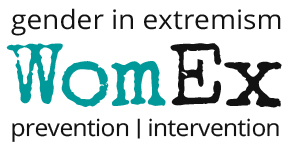The institute for gender-reflective violence prevention combines systemic thinking with a critical view of gender relations. Basic assumption are that:
- gender is a (historically) disputed and changeable social construct through which people perceive and manoeuvre which is constantly being confirmed by everyday activities (“doing gender”),
- men and women, boys and girls become victims of violence in different ways and also exhibit specific types of violent behaviour when acting as the perpetrator,
- critically examining normative gender images in terms of an extension of self-image and manoeuvring room as boys and girls, men and women is an important element in resource-oriented, violence prevention work,
- it is important to include the system (family, institution, team), which often supports and creates individual violent acts, in order to develop process oriented, effective, tailor made and long term prevention strategies.
In addition to the TESYA anti-violence training for children and young people between the ages of 11 to 18, the institute also offer supervision and coaching for teachers and care givers which is integrated into the training process, parental coaching, advising and processing supervision for schools, further training for pedagogical practice, as well as the TESYA® anti-violence trainer qualification designed for professionals working with aggressive children and youth. TESYA TESYA® is the training concept for aggressive youth which was developed between 2005 and 2007 as part of the programme Daphne II. The concept also works in cooperation with four European organisations, Camino in Berlin, Društvo za nenasilno komunikacijo in Ljubljana, Bliżej Dziecka in Warsaw and On the Safe Side in London. A special feature of the training concept is that it is one of the few training programmes available which already tackles the issue before delinquency occurs and is based on a systemic-behavioural approach which includes confrontational elements. In addition, it is implemented in a gender-differentiated setting and takes a gender sensitive approach, taking into account that boys and girls express aggression in different ways. In order to ultimately meet the different requirements of the young people and institutions, the training can also either be done one-to-one or in groups as needed. When necessary, the participants are offered a stabilisation coaching in connection with the training which takes the respective frame of reference of the young people into account. The organisation also offers an additional systemic solution-oriented coaching for parents and caregivers.The TESYA training approach is different from anti-aggression training (ATT) which is based on confrontational techniques which are hurtful and humiliating.
In this, ATT does not take into account that the violation of boundaries included as part of the training could lead the perpetrators to relive the trauma of their own experience with violence. Thus, TESYA deliberately leaves out techniques such as the “hot seat” which are used and play an important role in anti-aggression training. In contrast, it is expected that the trainer have a consistently respectful and appreciative attitude. In TESYA, the victimisation experience of the perpetrators is also addressed very carefully. It is important to refer to the victim experience in this way not only because it creates a more stable sense of self-esteem, but also because it supports the ability to take other perspectives and developing empathy. The TESYA training was scientifically monitored during the project period in which it was carried out. The evaluation assessed both how much the young people accepted the training and also verified its effectiveness. The overall framework and individual training modules were also included in the study. Standards have been developed from this study which serve as a guideline for conducting TESYA training. Meanwhile, the TESYA training approach has become particularly well-established in Berlin as a violence prevention tool. Schools, parents, family counselling centres and family and youth welfare institutions among others refer children and youth between the ages of 11 to 18 who act violently and have exhibited aggressive behaviour over a long period of time to the TESYA programme. Financing is either provided by the particitipating youth services or referring institution. Several Berlin youth welfare offices have included the training in their offer. The training programme has also been set up as a permanent offer in various schools. Several private organisations in Berlin work with this concept and conduct one-to-one and group training with male and female children and adolescents.TESYA professional Other European countries have shown interest in getting to know the TESYA training programme to test whether it would be suitable for institutions in their area. Enquires have come from Hungary, Bulgaria, Russia, Ukraine and Turkey. Therefore, TESYA professional was designed which was put into effect as part of Daphne III. Training concepts based on the TESYA approach have been developed in a collaborative development process with selected institutions which were adapted to both country specific conditions and other target groups (e.g., delinquent children and adolescents living in homes, drug-addicted youth). At the end of the two year project, after they had been been tested and evaluated, TESYA training concept variations were create which were established as a standing offer by participating educators in institutions in their country.
mail[at]ifgg-berlin.de www.ifgg-berlin.de top
